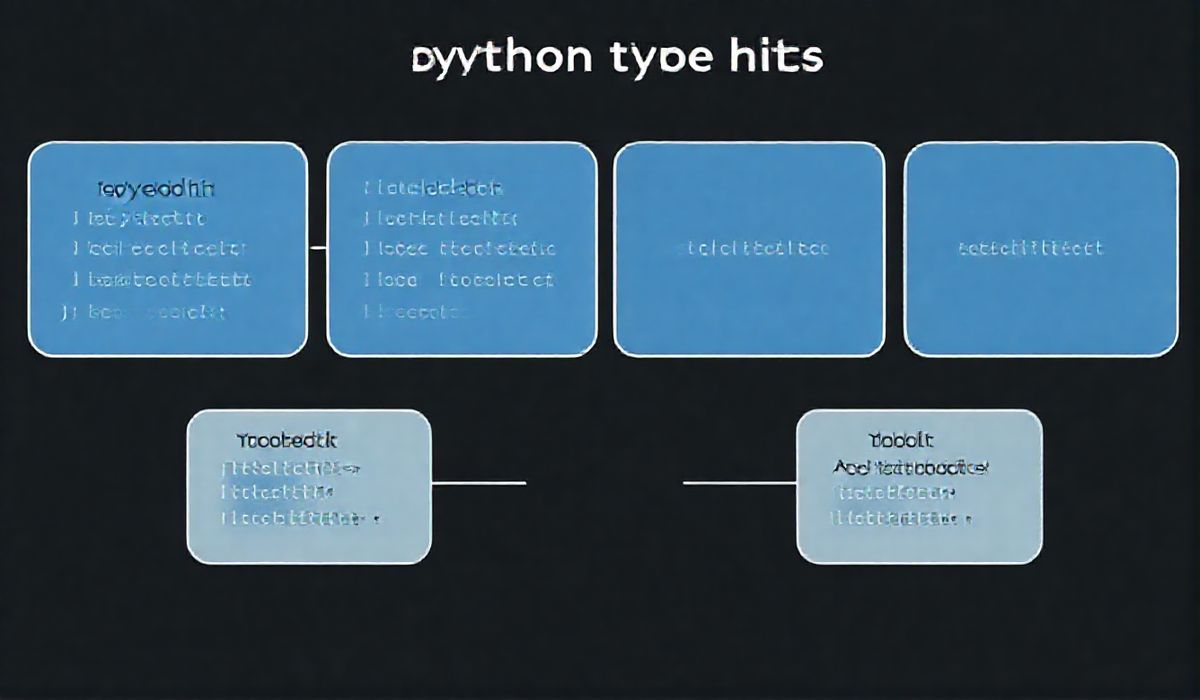An Introduction to Typing-Extensions in Python
The typing-extensions package is a versatile Python library that serves as a supplemental module to the built-in typing library. It allows developers to experiment with and adopt new type hinting and typing-related features before they’re officially added to the Python standard library. This is especially useful for projects that need forward compatibility with type-checkers like mypy or for developers working across different Python versions.
In this article, we will explore some of the most useful APIs offered by typing-extensions. Additionally, we’ll incorporate these APIs into a sample Python app. By the end, you’ll not only understand the practical utility of these features but also be equipped to implement them in your projects effectively.
Key Features and APIs of Typing-Extensions
Here’s a comprehensive list of APIs provided by typing-extensions, along with code examples for each:
1. TypedDict
TypedDict allows you to specify the structure of dictionaries with key-value pairs where both keys and values have predefined types. This is particularly useful for working with JSON-like data structures.
from typing_extensions import TypedDict
class User(TypedDict):
id: int
name: str
email: str
user: User = {"id": 1, "name": "John Doe", "email": "johndoe@example.com"}
2. Literal
Allows specifying a specific set of constant values for a type.
from typing_extensions import Literal
def get_status(status: Literal["success", "error"]) -> None:
print(f"Status: {status}")
get_status("success") # Valid
# get_status("unknown") # Error
3. Final
Marks a variable or method as final, meaning it cannot be reassigned or overridden.
from typing_extensions import Final API_URL: Final = "https://api.example.com" # API_URL = "https://newapi.example.com" # Error
4. Annotated
Adds metadata to type hints, useful for validating or describing types.
from typing_extensions import Annotated
def process_text(text: Annotated[str, "Must be a non-empty string"]) -> str:
assert text, "Text cannot be empty"
return text.upper()
print(process_text("hello")) # Outputs: HELLO
5. Self
Helps define methods that return an instance of the same class when hinting.
from typing_extensions import Self
class Builder:
def set_name(self, name: str) -> Self:
self.name = name
return self
def set_age(self, age: int) -> Self:
self.age = age
return self
builder = Builder().set_name("John").set_age(30)
6. Protocol
Defines an interface that any implementing class must adhere to.
from typing_extensions import Protocol
class Flyer(Protocol):
def fly(self) -> str:
...
class Bird:
def fly(self) -> str:
return "I am flying"
bird: Flyer = Bird()
print(bird.fly()) # Outputs: I am flying
7. Never
Represents a function that never returns, like a function that always raises exceptions.
from typing_extensions import Never
def raise_error(message: str) -> Never:
raise ValueError(message)
Building a Practical Application Using Typing-Extensions
To understand the real-world utility of typing-extensions, let’s build a small app using the APIs discussed above.
App: User Registration System
from typing_extensions import TypedDict, Literal, Annotated, Final, Protocol
# Define constants
STATUS: Final[Literal["active", "inactive", "banned"]] = "active"
# Define a dictionary structure using TypedDict
class User(TypedDict):
id: int
name: str
email: str
status: Literal["active", "inactive", "banned"]
# Define a protocol for sending notifications
class Notifier(Protocol):
def send_notification(self, user: User, message: str) -> None:
...
class EmailNotifier:
def send_notification(self, user: User, message: str) -> None:
print(f"Sending email to {user['email']}: {message}")
class UserManager:
def __init__(self, notifier: Notifier):
self.notifier = notifier
def register_user(self, id: int, name: str, email: str) -> User:
user: User = {
"id": id,
"name": name,
"email": email,
"status": STATUS
}
self.notifier.send_notification(user, "Welcome!")
return user
# Usage example
notifier = EmailNotifier()
user_manager = UserManager(notifier)
user = user_manager.register_user(1, "Alice", "alice@example.com")
print(user)
Conclusion
The typing-extensions library is a must-have tool for Python developers who want to leverage advanced type-checking features and write more robust, understandable, and maintainable code. Whether you’re working on a simple script or a complex application, the additional flexibility and clarity provided by typing-extensions can make your code easier to read and debug.




